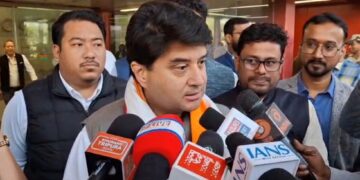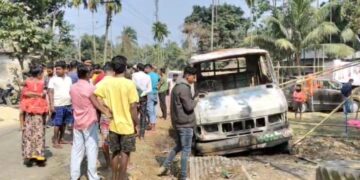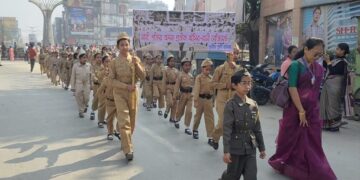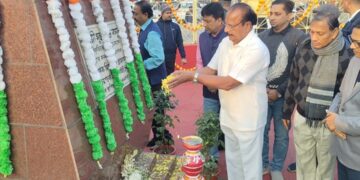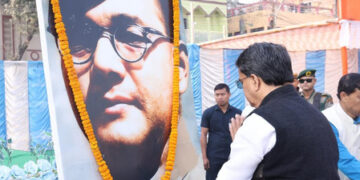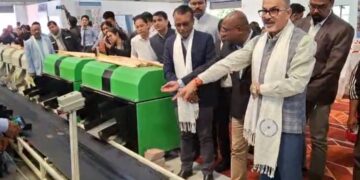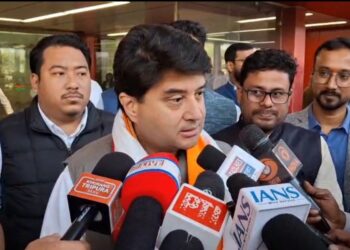Agartala, September 24 – Meeting of executives from the National Federations for New State (NFNS) started at state guesthouse in Agartala on Sunday.
Representatives from seven out of ten states, including – Tipraland, Gorkhaland, Boroland, Vidharvha, Garoland, Karbi Along, and Telangana, gathered to discuss their longstanding demands for separate statehood.
Swapnajit Sanyal, the general secretary for NFNS, opened the meeting by emphasizing the historical context and constitutional provisions supporting their demands.
He stated, “These demands are not new; some date back over a century, like Vidarvha and Gorkhaland. The Indian Constitution provides for the creation of new states, making these demands constitutional.”
Sanyal further pointed out the underdevelopment and the need for granting autonomy to regions with unique histories and identities. He highlighted that the current administrative boundaries were shaped by historical accidents and British colonial rule, calling for corrections. “India began with 14 states, but that number has since doubled,” Sanyal noted.
The demands for separate states in Northeast India are primarily rooted in ethnic considerations, while regions like Bundelkhand, Vidarbha, and Ladakh seek statehood due to development disparities, agrarian distress, and the dire conditions faced by their populations.
Munish Tamang, the president of NFNS and a representative of the Gorkhaland demand, expressed disappointment in the lack of political will among ruling parties to address these issues. He noted that the Trinamool Congress had included Gorkhaland in its election manifesto but had not made tangible progress toward a solution.
Nirup Reddy, a senior advocate in the Supreme Court, called for a clear policy or criteria for state formation.
He pointed out that when Jharkhand, Uttarakhand, and Chhattisgarh were created, there was no established policy, but there was a process involving resolutions passed in the assemblies of the existing states. Reddy questioned the formation of Telangana, suggesting it lacked a clear rationale.
The meeting also touched upon the historical reorganization of states based on linguistic lines in 1950 by the State Reorganisation Commission, led by a retired Supreme Court judge. This event marked a significant shift in India’s state boundaries.
As the executives of NFNS gather to discuss their demands, the nation watches closely to see if these longstanding issues will finally see progress and resolution.

